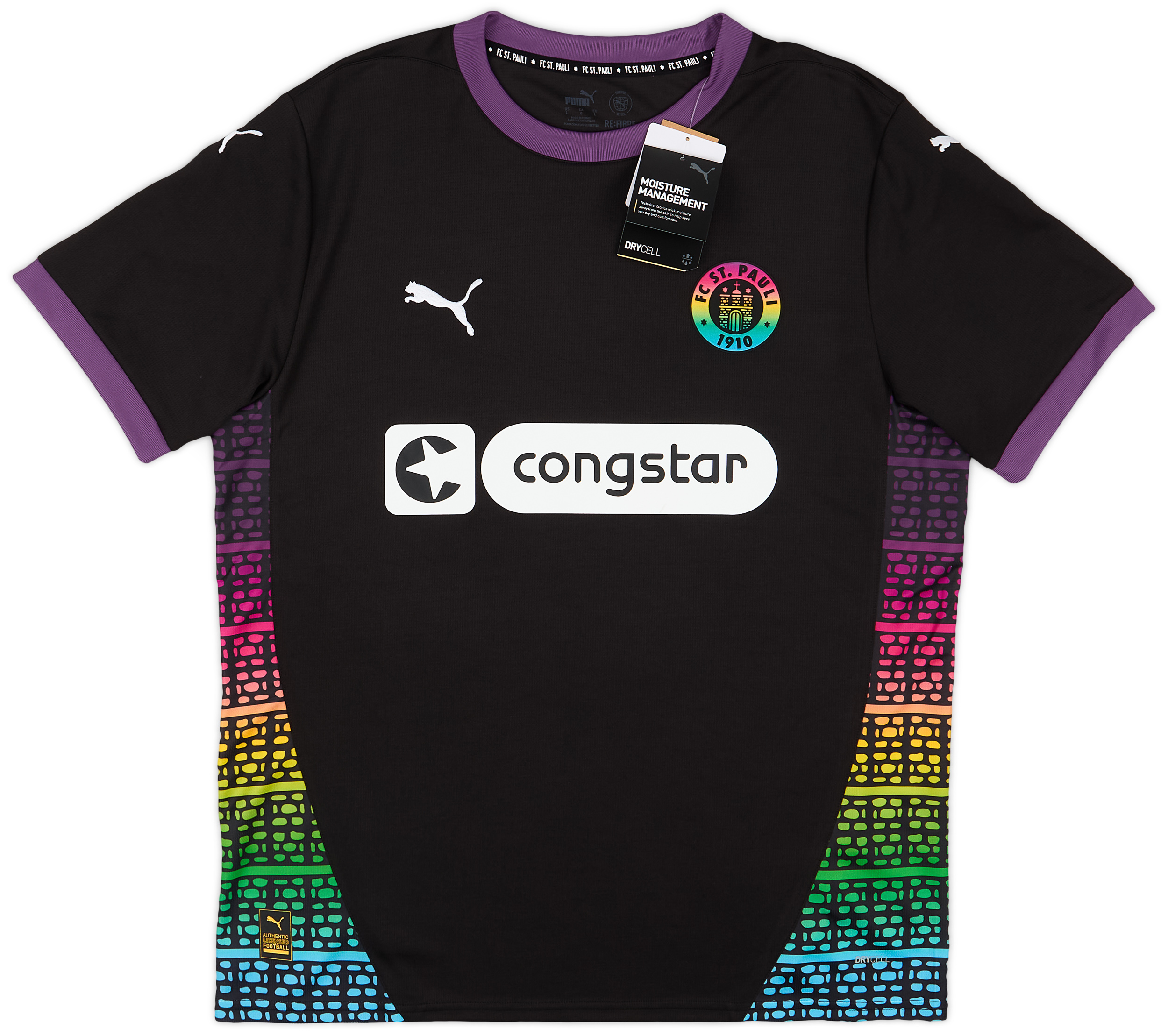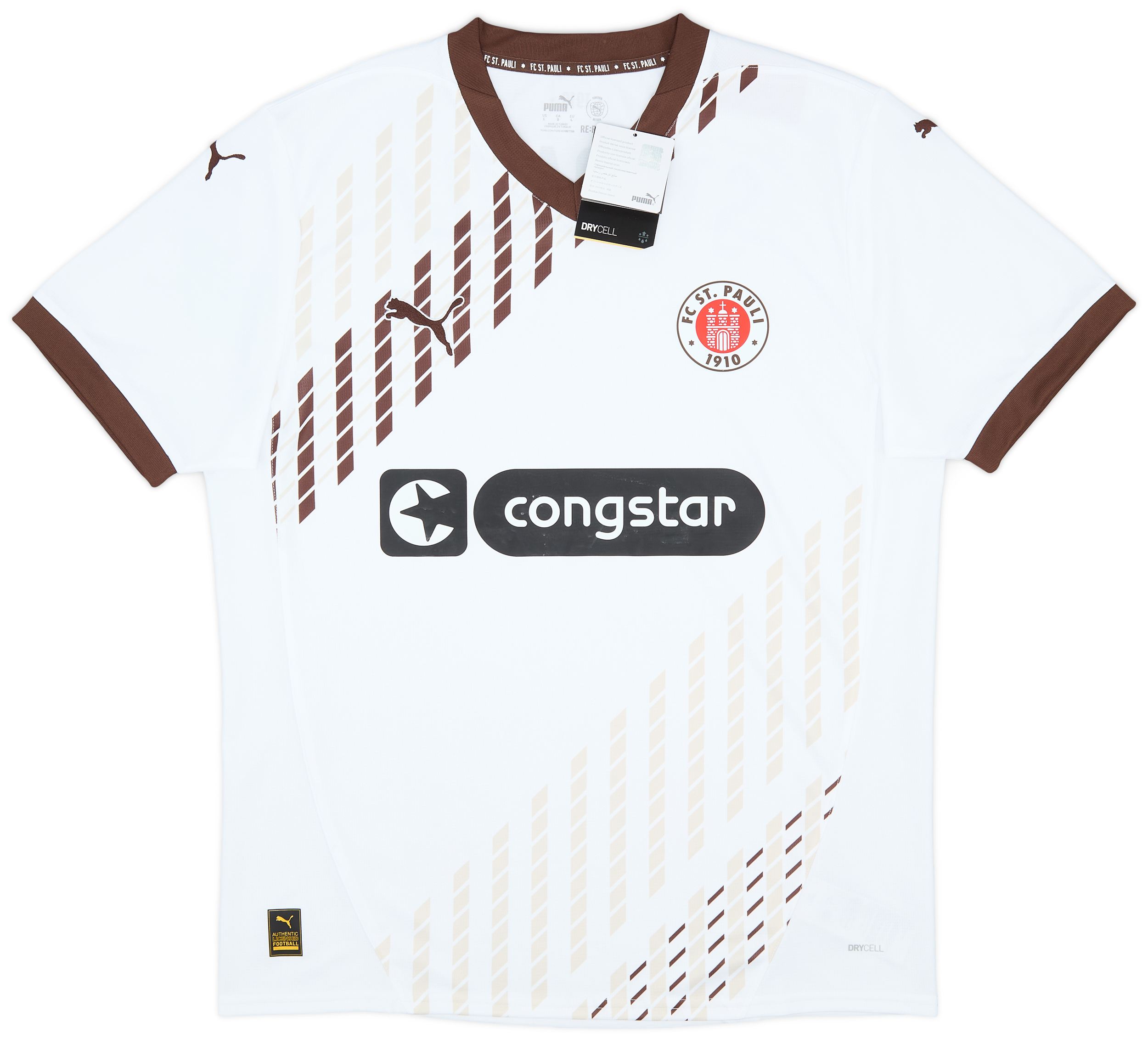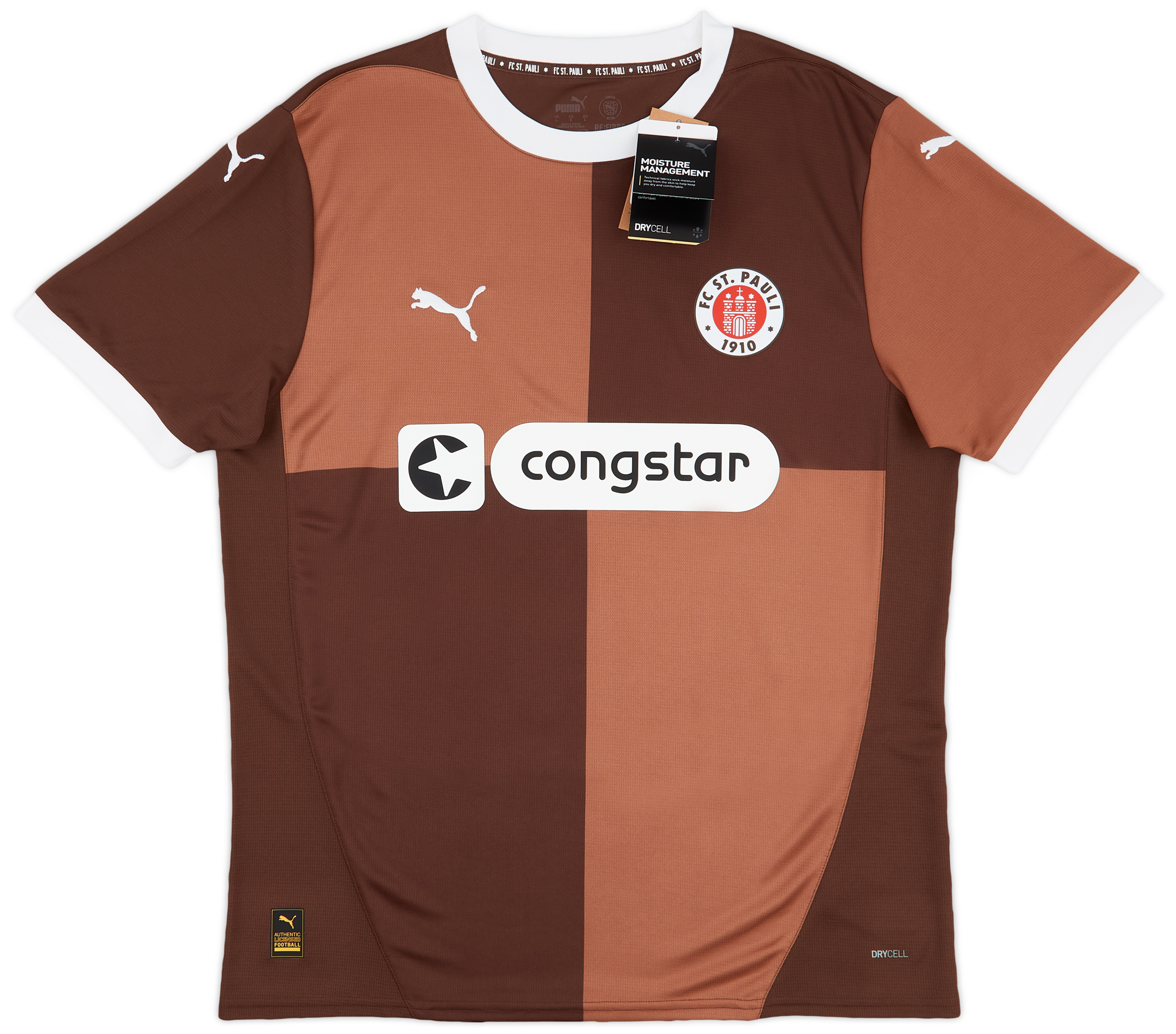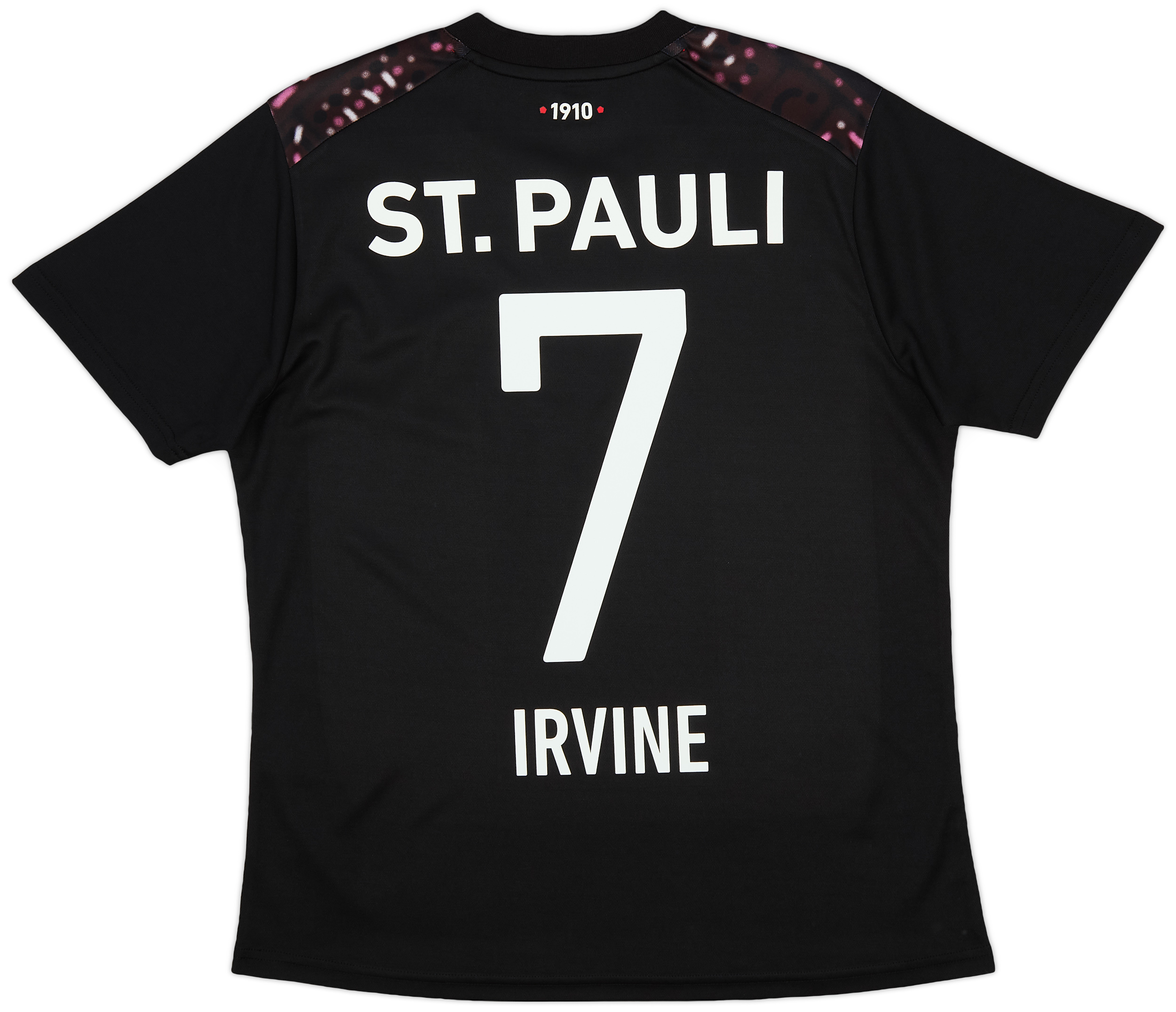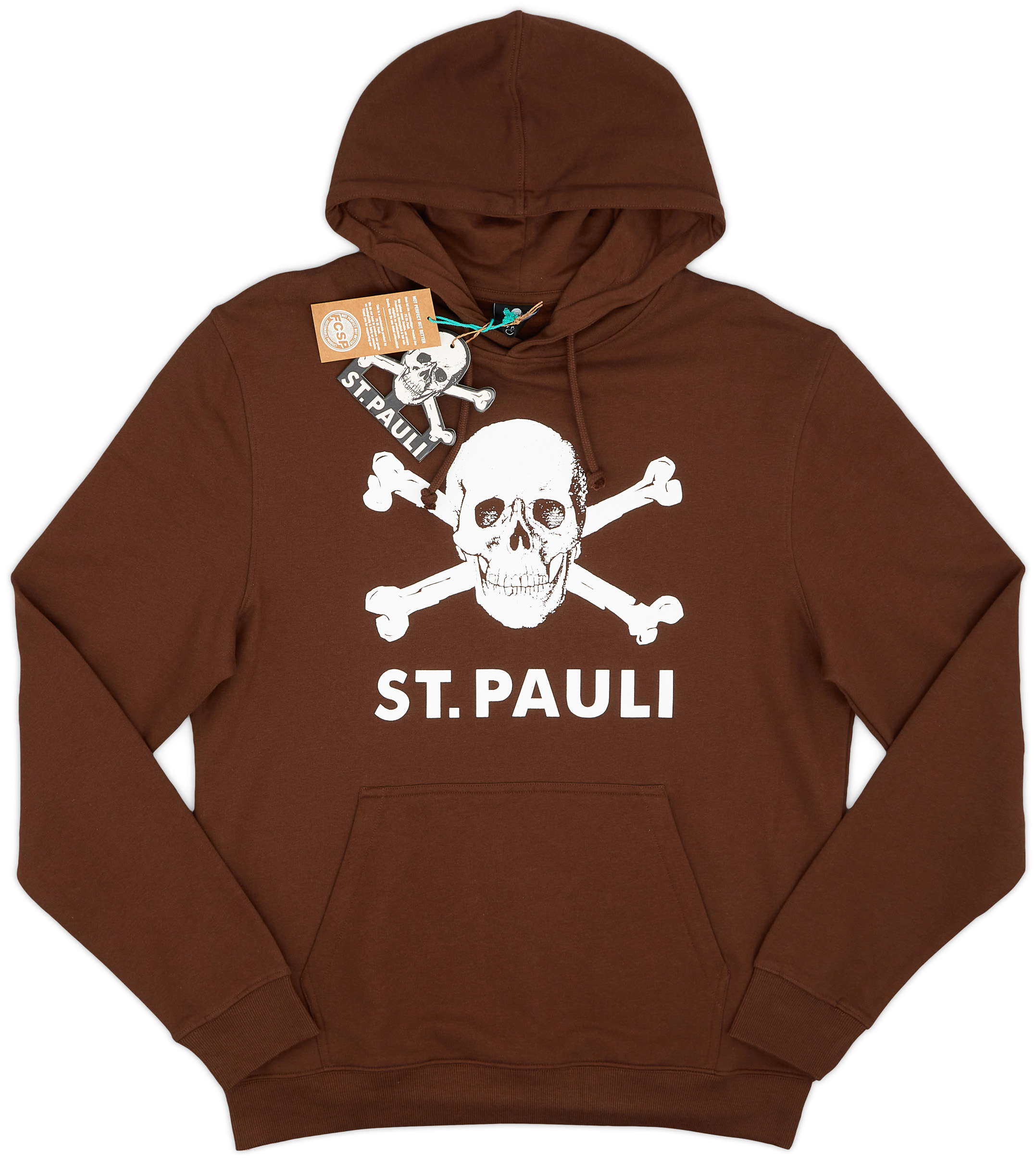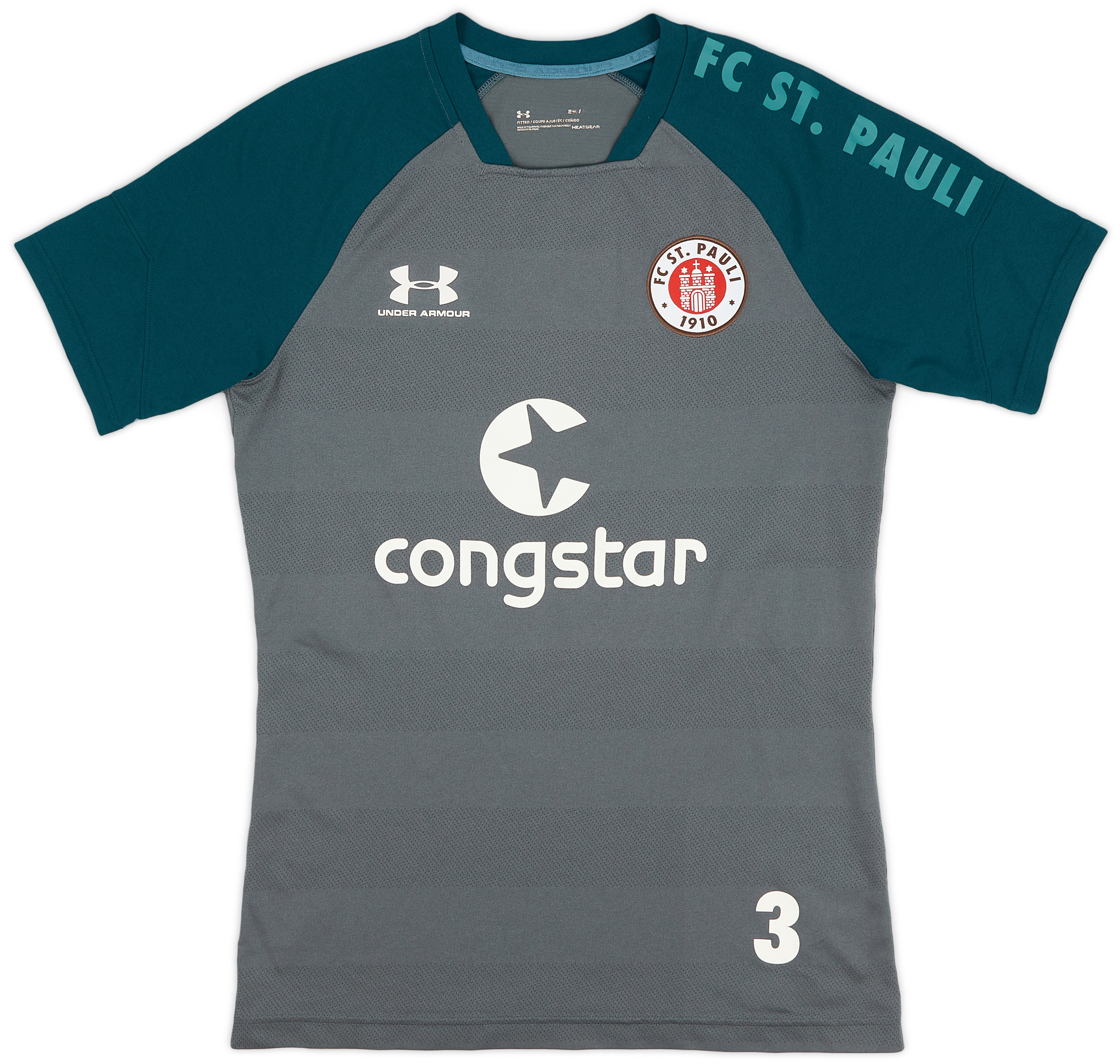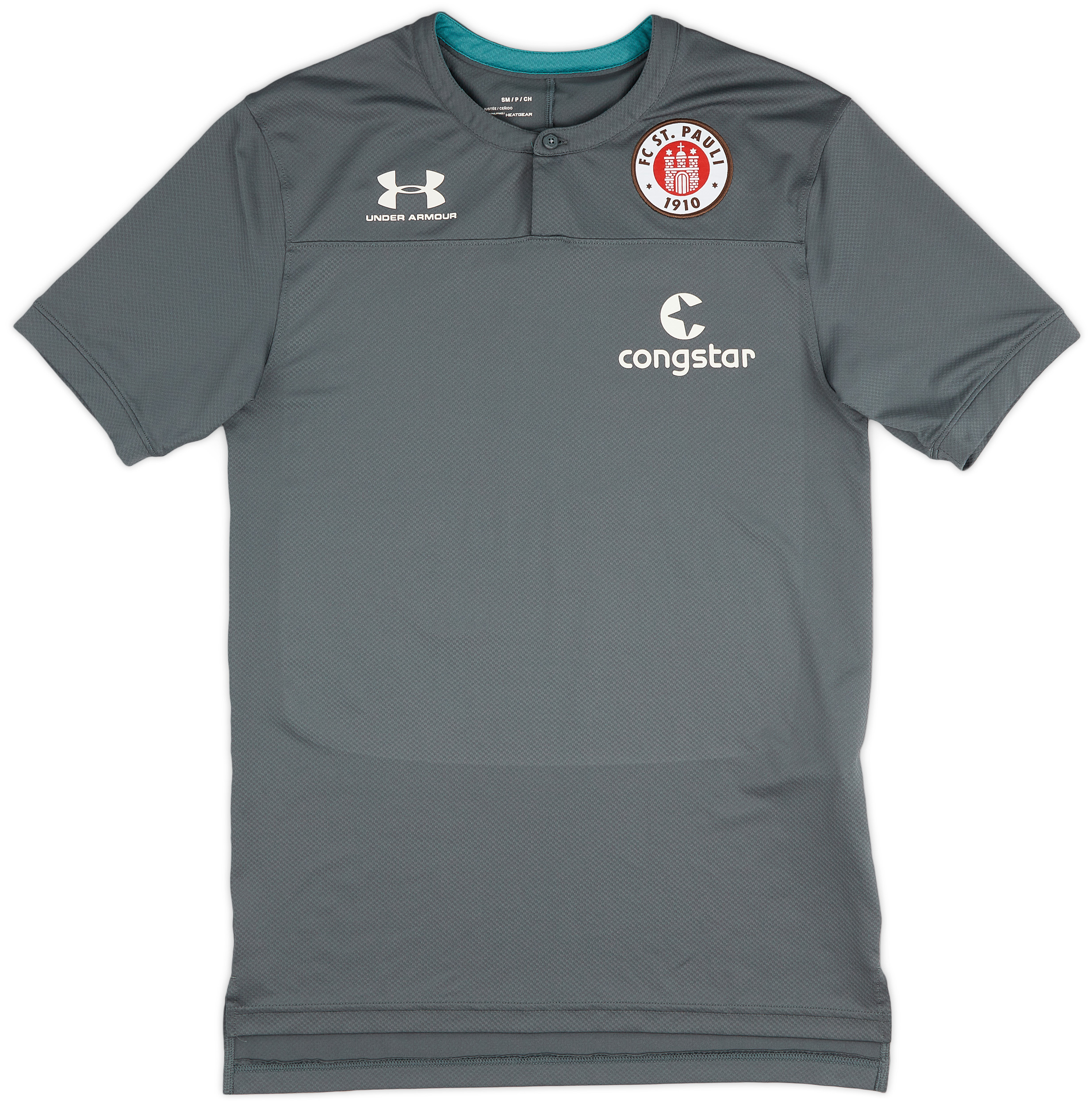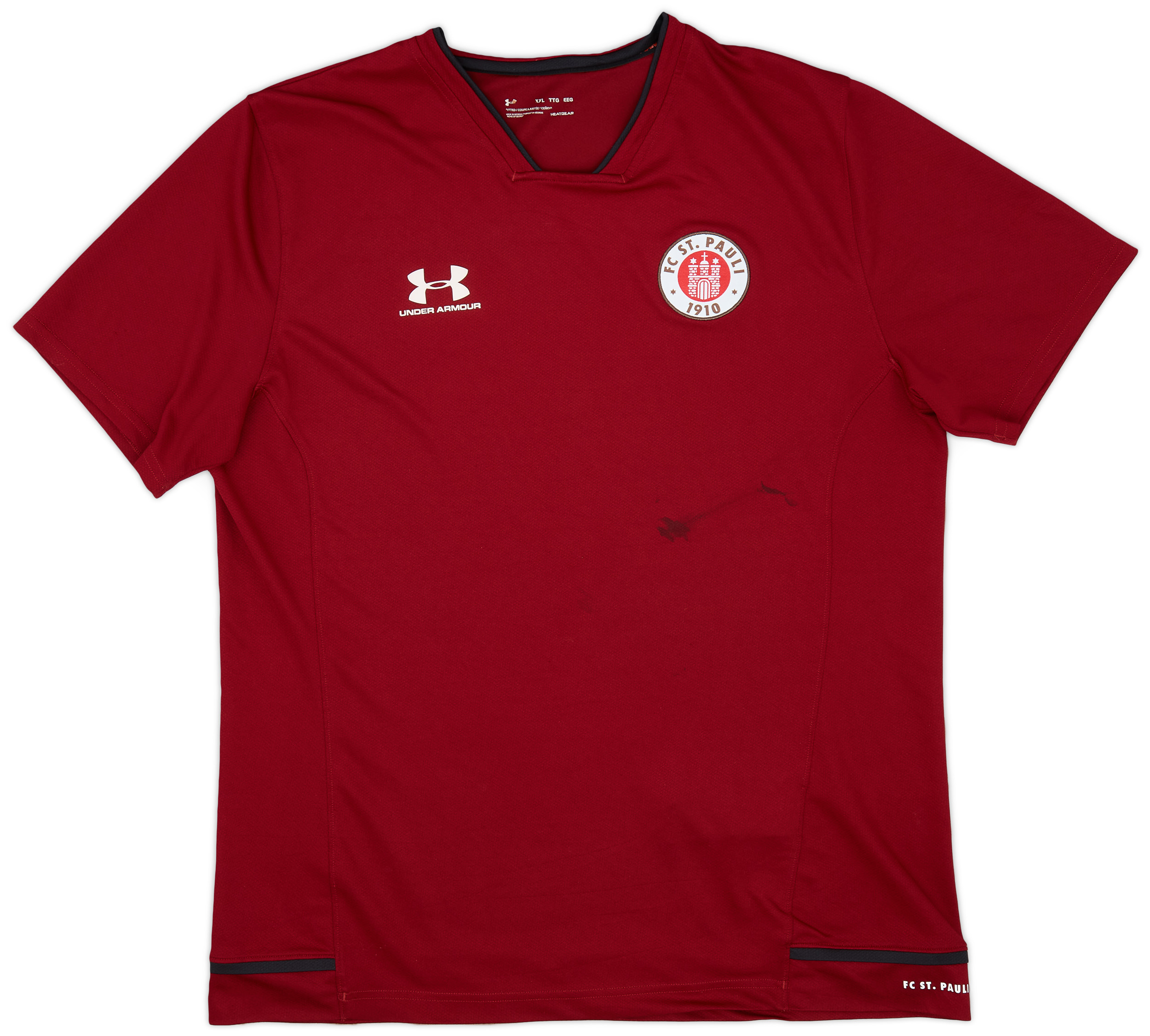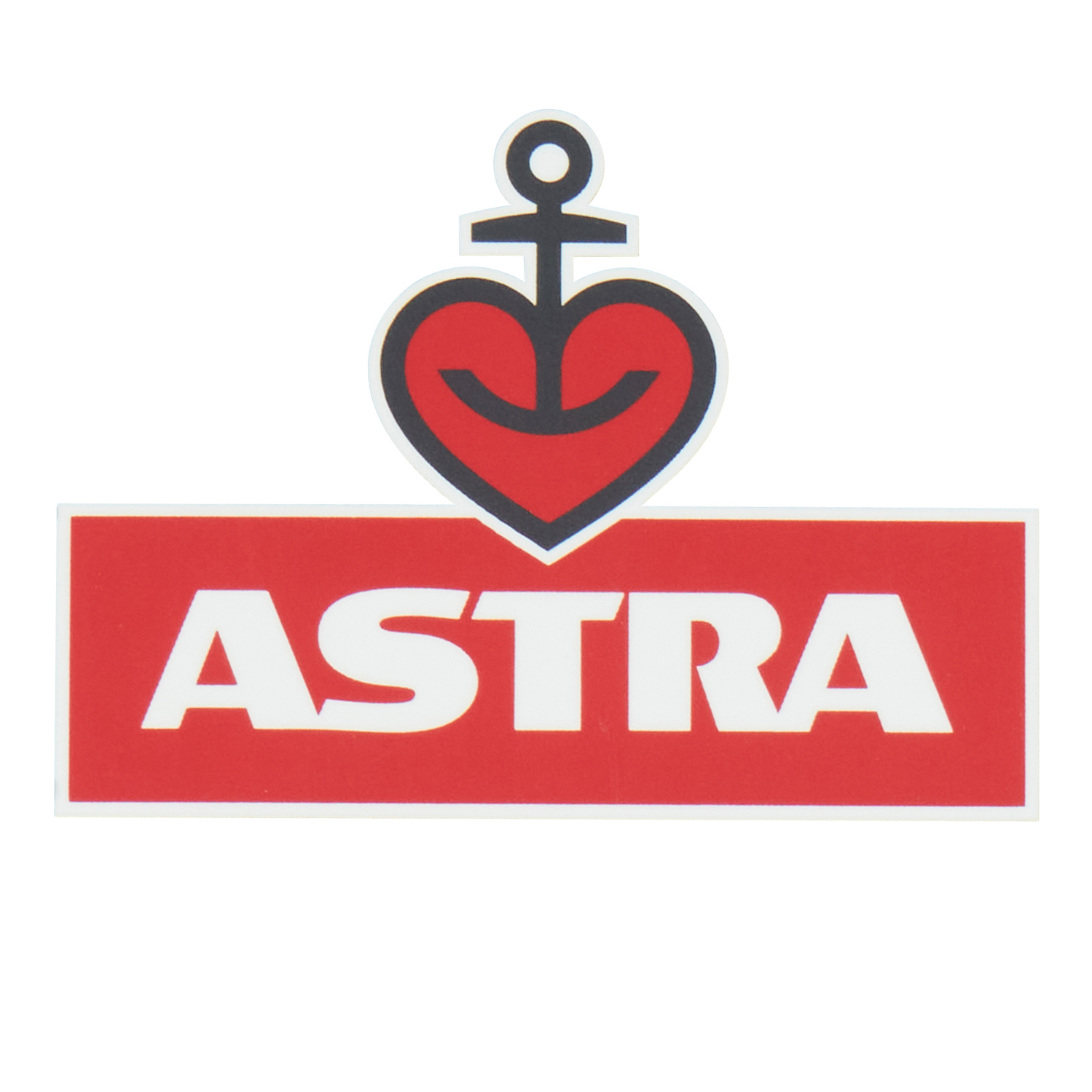St Pauli
Introduction FC St. Pauli, a beloved football club based in Hamburg, Germany, is renowned not only for its unique position in German football but also for its rich culture and vibrant identity. Founded in 1910, St. Pauli embodies the spirit of its working-class neighborhood and is fiercely proud of its values—resistance, inclusivity, and social justice. […]
2017-18 St Pauli Home Shirt Daehli #14 (S)
118.99£ - ca: €140
2024-25 St Pauli Third Shirt
103.99£ - ca: €123
2004-05 St Pauli Home Shirt - 6/10 - (L)
94.99£ - ca: €112
2024-25 St Pauli Away Shirt
94.99£ - ca: €112
2024-25 St Pauli Home Shirt
82.99£ - ca: €98
2007-08 St Pauli Home Shirt - 7/10 - (S)
82.99£ - ca: €98
2024-25 St Pauli Puma 1/4 Zip Training Top
76.99£ - ca: €91
2014-15 St Pauli Third Shirt - 8/10 - (S)
70.99£ - ca: €84
2015-16 St Pauli Away Shirt - 6/10 - (S)
70.99£ - ca: €84
2011-12 St Pauli Home Shirt - 6/10 - (M)
70.99£ - ca: €84
2022-23 St Pauli Away Shirt Irvine #7
70.99£ - ca: €84
2015-16 St Pauli Third Shirt - 8/10 - (S)
70.99£ - ca: €84
2024-25 St Pauli Puma 1/4 Zip Training Top
70.99£ - ca: €84
2022-23 St Pauli Third Shirt Irvine #7
70.99£ - ca: €84
2021-22 St Pauli Away Shirt - 6/10 - (M)
70.99£ - ca: €84
2010-11 St Pauli Away Shirt #9 - 7/10 - (XL)
70.99£ - ca: €84
2012-13 St Pauli Home Shirt - 7/10 - (L)
70.99£ - ca: €84
2024-25 St Pauli Puma Training Pants/Bottoms
70.99£ - ca: €84
2024-25 St Pauli Home Shirt (KIDS)
64.99£ - ca: €77
2014-15 St Pauli Away Shirt - 6/10 - (L)
58.99£ - ca: €70
2023-24 St Pauli Di!Y Hooded Top
58.99£ - ca: €70
2022-23 St Pauli Third Shirt
47.99£ - ca: €57
2022-23 St Pauli Away Shirt
47.99£ - ca: €57
2024-25 St Pauli Puma Training Shirt
47.99£ - ca: €57
2020-21 St Pauli Player Issue Training Shirt #3 - 9/10 - (S)
47.99£ - ca: €57
2022-23 St Pauli GK Home Shirt
47.99£ - ca: €57
2024-25 St Pauli Puma Training Shirt
47.99£ - ca: €57
2024-25 St Pauli Home Shorts
44.99£ - ca: €53
2024-25 St Pauli Puma Training Shorts
41.99£ - ca: €50
2022-23 St Pauli GK Away Shirt
41.99£ - ca: €50
2022-23 St Pauli Away Shirt Irvine #7 (KIDS)
41.99£ - ca: €50
2007-08 St Pauli Home Shorts - 6/10 - (M)
41.99£ - ca: €50
2018-19 St Pauli Under Armour Training Shirt - 9/10 - (S)
35.99£ - ca: €42
2020-21 St Pauli Under Armour Training Shirt - 8/10 - (XXL)
29.99£ - ca: €35
2022-23 St Pauli Third Shirt (3-4 Years)
23.99£ - ca: €28
2022-23 St Pauli Away Shirt (KIDS)
23.99£ - ca: €28
2017-23 St Pauli Astra Player Issue Sleeve Patch
7.99£ - ca: €9
Introduction
FC St. Pauli, a beloved football club based in Hamburg, Germany, is renowned not only for its unique position in German football but also for its rich culture and vibrant identity. Founded in 1910, St. Pauli embodies the spirit of its working-class neighborhood and is fiercely proud of its values—resistance, inclusivity, and social justice. The club’s famous skull and crossbones crest is a symbol of its defiance and individuality, distinguishing it from more traditional football clubs. St. Pauli is more than just a football team; it’s a movement that attracts fans from around the globe who appreciate its commitment to activism and community engagement.
Club History
FC St. Pauli was established on May 15, 1910, originally as a sports club for the local community. It wasn’t until the 1950s that the football team began to gain prominence, achieving its first major success by winning the Amateurliga Hamburg title in 1954. The club’s history is marked by its fluctuating status in the German leagues, having seen time in the upper echelons of the Bundesliga and competing in lower divisions. One of the most significant historical moments came in 1977 when St. Pauli reached the Bundesliga for the first time, marking the beginning of a new era. However, mismanagement and poor performances led to relegation in 1979. It wasn’t until the early 2000s that the club began to stabilize and share its values more effectively both on and off the pitch.
Achievements
While St. Pauli may not boast an extensive trophy cabinet compared to more decorated clubs, its achievements are significant and cherished by its fanbase. The club’s most notable achievements include winning the DFB-Pokal (German Cup) in 2006, which remains a landmark moment in its history. Additionally, St. Pauli has had several successful seasons in the second tier of German football, securing the 2. Bundesliga championship in 1996, 2001, and 2006. The team has also spent a number of seasons in the Bundesliga, showcasing its ability to compete at the top level of German football. Their player development initiatives and commitment to youth training have further solidified their reputation as a club with a focus on nurturing talent.
Significant Players and Matches
Over the years, St. Pauli has been home to many notable players. Among them, legendary goalkeeper Klaus Thomforde, who played during the 1980s, remains a significant figure in the club’s history. More recently, players like Max Kruse and Lasse Schöne have etched their names into the hearts of fans with their standout performances. One of the most memorable matches occurred in 2006 when St. Pauli faced FC Schalke 04 in the DFB-Pokal, where they triumphed against all odds, reinforcing their reputation as giant killers. The match was not just a victory but a symbol of their fighting spirit and determination to challenge the established order.
Cultural Impact
St. Pauli’s cultural impact extends far beyond the football pitch. The club is famously associated with leftist politics, often championing social causes and promoting tolerance and diversity. Its fanbase is known for being inclusive, welcoming individuals from all walks of life, which reflects the diverse character of the St. Pauli neighborhood itself. The home ground, Millerntor-Stadion, serves as a community hub where music events, art exhibitions, and even political rallies are held. The club’s motto, “Nicht nur ein Verein” (Not just a club), signifies its role in local culture as more than just a football team—it’s a community institution that advocates for social change and activism.
Conclusion
FC St. Pauli holds a special place in the landscape of football history, characterized by its unique culture, passionate fanbase, and unwavering commitment to social justice. While the club may not have the vast trophy haul of other clubs in Germany, its ethos and significant achievements have carved an indelible mark on the sport. FC St. Pauli represents the true spirit of football — a game that unites communities, inspires passion, and champions the values of solidarity, inclusivity, and resistance against adversity. As the club continues to evolve, it remains a beacon for those who are drawn not only to the beautiful game but to the powerful messages it can convey.

